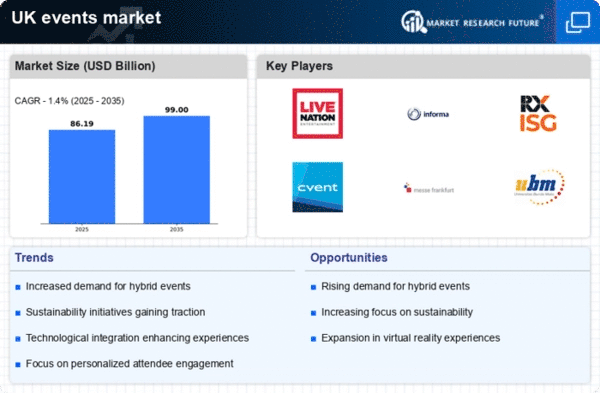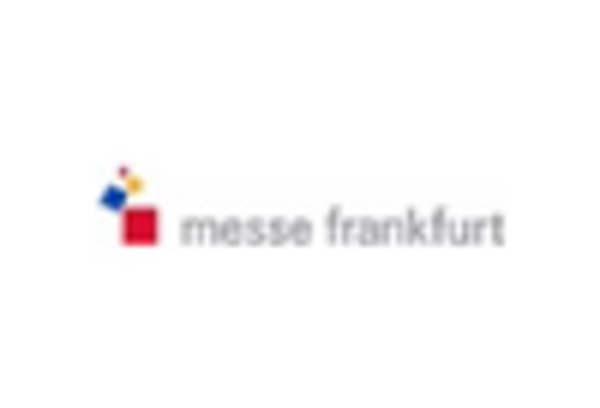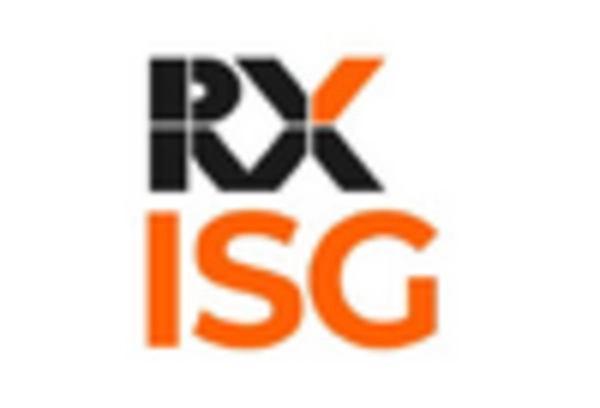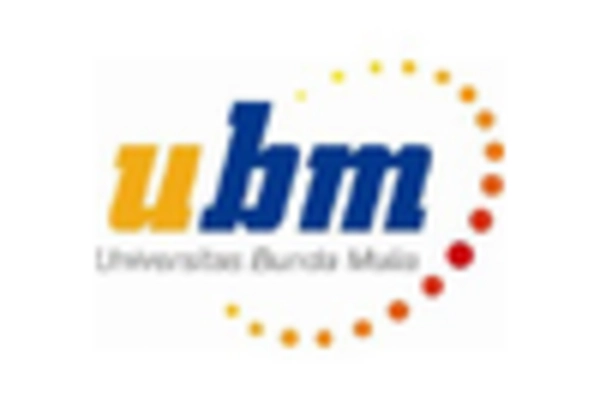Shift Towards Localized Events
There is a noticeable shift towards localized events within the events industry market, as organizations seek to connect with their communities and reduce travel-related carbon footprints. This trend is particularly relevant in the UK, where local events are gaining popularity due to their accessibility and lower costs. In 2025, it is anticipated that localized events will account for approximately 30% of the total events market, reflecting a growing preference for smaller, community-focused gatherings. This shift not only supports local economies but also aligns with the increasing consumer demand for sustainability. As a result, the events industry market is likely to see a diversification of event types, catering to local audiences and fostering community engagement.
Regulatory Changes and Compliance
The events industry market is also shaped by regulatory changes and compliance requirements that impact how events are organized and executed. In the UK, new regulations regarding health and safety, data protection, and environmental sustainability are influencing event planning strategies. For instance, compliance with the General Data Protection Regulation (GDPR) has necessitated changes in how attendee data is collected and managed. As the events industry market adapts to these regulations, event organizers are likely to invest in training and resources to ensure compliance, which may increase operational costs but also enhance the credibility and trustworthiness of events. This regulatory landscape could potentially reshape the competitive dynamics within the market.
Increased Corporate Investment in Events
Corporate investment in the events industry market is on the rise, as businesses recognize the value of face-to-face interactions for networking and brand promotion. In 2025, corporate spending on events in the UK is projected to reach £2 billion, reflecting a growing trend towards hosting conferences, seminars, and product launches. This investment is driven by the need for companies to foster relationships with clients and stakeholders, which is often more effectively achieved through live events. Additionally, the demand for bespoke corporate events tailored to specific audiences is likely to further stimulate growth in the events industry market, as organizations seek to create memorable experiences that resonate with their target demographics.
Growing Demand for Experiential Marketing
Experiential marketing is becoming a pivotal driver in the events industry market, as brands strive to create immersive experiences that engage consumers on a deeper level. In the UK, the experiential marketing sector is expected to grow by 20% in 2025, indicating a shift towards events that prioritize interaction and engagement. This trend is particularly relevant for brands looking to differentiate themselves in a crowded marketplace. By leveraging live events, companies can foster emotional connections with their audience, which can lead to increased brand loyalty and customer retention. As a result, the events industry market is likely to benefit from this growing demand for unique and memorable experiences.
Technological Advancements in Event Management
The events industry market is increasingly influenced by technological advancements that streamline event management processes. Innovations such as event management software, mobile applications, and virtual reality are enhancing attendee experiences and operational efficiency. For instance, the integration of AI-driven tools allows for personalized marketing strategies, which can lead to higher engagement rates. In 2025, it is estimated that the UK events industry market will see a growth of approximately 15% due to these technological enhancements. Furthermore, the adoption of contactless payment systems and digital ticketing solutions is likely to improve customer satisfaction and reduce operational costs, thereby driving the overall market growth.
















